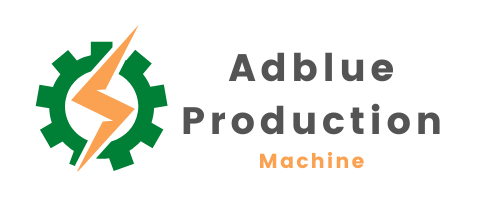Several SEO myths and facts have been prevalent over the years. In the world of digital marketing, Search Engine Optimisation plays a pivotal role. With so much online information, it can be challenging to understand the myths and facts regarding specific methods.
Read through the blog to unravel and explore the top 10 SEO myths to ignore in 2023 and optimise the content that stands out among others by focusing on the facts for better rankings.
The best digital marketing agencies in Chennai follow the strategies derived from the facts to make their content gain a competitive edge, enhance user engagement, and improve search engine rankings with the expertise of SEO professionals.
10 SEO Myths & Facts to ignore in 2023
Table of Contents
- 10 SEO Myths & Facts to ignore in 2023
- 1. Domain authority/age is a ranking factor
- 2. Multiple links are better than quality links
- 3. On-page SEO is all you need to rank
- 4. PPC advertising boosts the ranking
- 5. Keyword research is not necessary
- 6. LSI keywords are the only thing that will help you rank
- 8. Ranking is all about backlinks
- 9. SEO is a one-time thing/ process
- 10. Page Rank is the most crucial metric
- SEO Myths debunked with Digital Foaster
- Wrapping Up
1. Domain authority/age is a ranking factor
One of the common myths in SEO is that domain authority helps improve rankings and outranks competitors.
Fact: The domain age does not determine how well the website will rank. The idea that domain authority is a ranking factor is considered a more controversial topic than a myth among SEO professionals.

A website with high domain authority does not automatically rank higher in search results than a website with lower domain authority, as there are many other factors that Google considers when ranking websites, like high-quality content and quality external links. Content is a critical component of SEO. It helps establish relevance, attract backlinks, and improve user engagement signals, which can contribute to higher search rankings and domain authority.
2. Multiple links are better than quality links
The idea that multiple links are better than quality links has been one of the common SEO myths since time immemorial.
Fact: However, quality links play a pivotal role rather than quantity. Some SEO strategies previously relied on obtaining as many links as possible, regardless of their quality. However, search engines have detected sites that try manipulating search rankings through low-quality links. Today, the most effective way to improve your website’s search engine rankings is by building high-quality, authoritative links from reputable websites. These links should come from relevant sources and be acquired naturally through quality content creation.

3. On-page SEO is all you need to rank
While on-page optimization can help search engines understand the content on your website, it’s not the only factor that determines your website’s ranking.
Search engines like Google use a complex algorithm considering hundreds of ranking factors, both on-page, off-page, and technical SEO. On-page factors include keyword optimization, meta descriptions, internal linking, and website structure, and off-page factors include things like backlinks, social signals, and brand mentions. In comparison, off-page SEO comprises proper crawling and indexing strategies.

In conclusion
on-page SEO is an essential aspect of optimizing your website for search engines, but it’s not the only factor determining your website’s ranking. To achieve a high ranking in search engine results pages, you must focus on a comprehensive SEO strategy that considers all the essential ranking factors and pillars of SEO strength.
4. PPC advertising boosts the ranking
PPC advertising does not directly impact your website’s SEO or organic search ranking. While PPC advertisements can drive traffic to your website, they do not offer the same long-term benefits as SEO efforts. You can improve your website’s relevance to search engines and your chances of ranking higher in organic search results by creating informative, engaging, and optimised content.

Page load speed is irrelevant for ranking: SEO myths addressed for practical user experience and rankings. A slow-loading website can cause affect users, leading them to leave the site before even seeing its content. It can increase bounce rates, reduce the time spent on the site, and ultimately harm the website’s ranking. It is essential to keep the site responsive and mobile-friendly as well. Website owners can improve SEO rankings and boost user experience by improving site speed.
5. Keyword research is not necessary
Keyword research remains essential in a successful SEO strategy. It helps website owners understand the language and intent behind their target audience’s search queries. It can inform their content strategy and help them create content that resonates with their audience.

6. LSI keywords are the only thing that will help you rank
LSI (Latent Semantic Indexing) keywords are not the only thing that will help you rank in search engines. While LSI keywords can help improve your content’s relevance and comprehensiveness, they are just one of many factors that search engines use to determine the relevance and authority of a page
- High-quality backlinks from authoritative websites
- Optimised content, images, and videos
- Clear and descriptive URL structures
- Mobile-friendly design with enhanced navigational experience for users

8. Ranking is all about backlinks
While backlinks are essential in SEO (Search Engine Optimization), ranking is not solely about backlinks. In addition to having a solid backlink profile, having high-quality content relevant to the user’s search query is also essential for ranking well in search engines.
Search engines use algorithms to determine how to rank web pages in search results. These algorithms consider various factors, including the relevance and quality of the content, the user’s search intent, and the overall authority and trustworthiness of the website.
9. SEO is a one-time thing/ process
The truth is that SEO is an ongoing process that necessitates constant effort, attention, and upkeep.
Google’s algorithms constantly evolve to provide their users with the best search results. SEO is more than simply optimising a website for search engines. It’s about providing valuable content, a positive user experience, and building relationships with your audience. To be successful, all of these elements require ongoing attention and effort.
10. Page Rank is the most crucial metric
Search engines use several ranking factors to determine the relevance, authority, and trustworthiness of a web page, including the quality of the content, user engagement, site speed, mobile-friendliness, and many other factors. PageRank is still a part of Google’s algorithm, but it is just one of many signals that Google uses to rank pages.
SEO Myths debunked with Digital Foaster
Digital Foaster, one of the best SEO agencies in Chennai, is equipped with top-notch SEO professionals that implement SEO strategies keeping in mind the latest algorithms and trends to rank in the search engines.
Our Leading Brand Collaborations & Partnerships

















Let's Grow Better Bigger
We’re always here to help you with any questions or concerns you may have. Our customer service team is available 24/7 to assist you.
Wrapping Up
We hope the above-listed points gave valuable insights into the several SEO myths, as other search engine ranking factors need to be considered while working to rank high on the search engine rankings or SERP results. It is essential to check and understand if the SEO information put forth on the digital front is authentic and credible.




One thought on “10 Cool SEO Myths & Facts You Must Ignore In 2023”